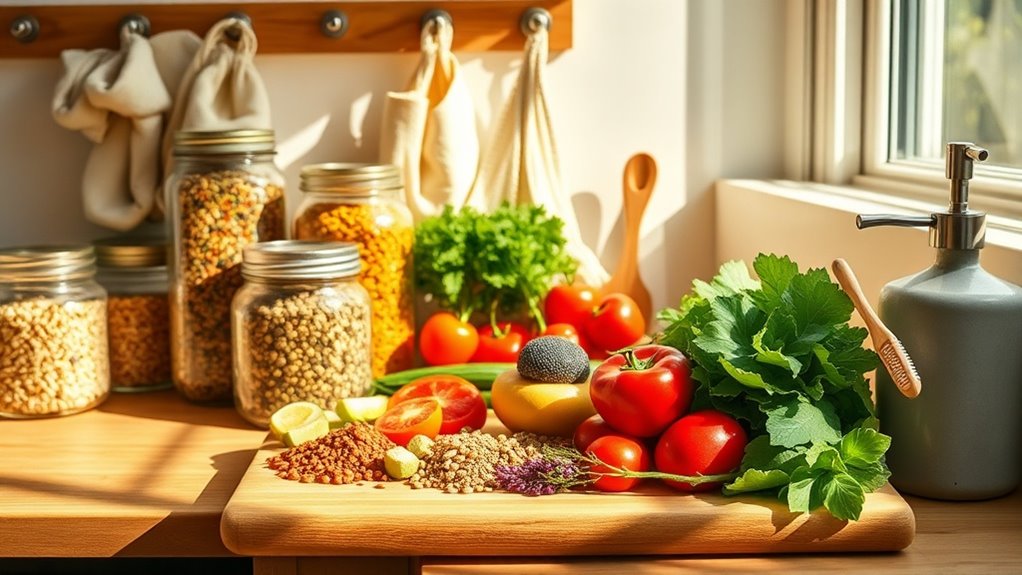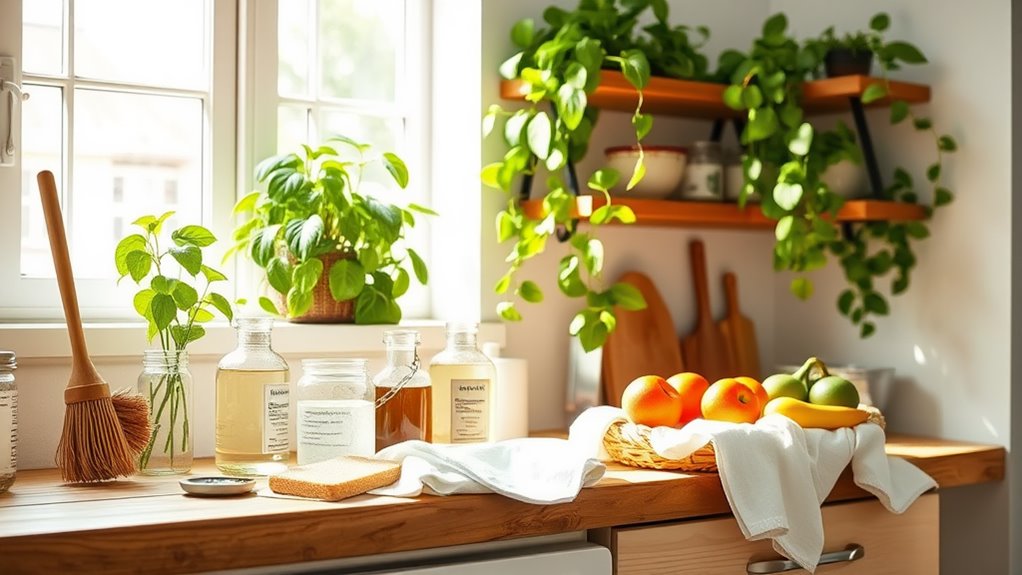Zero Waste Living – Small Changes That Make a Big Impact
Zero waste living starts with small, intentional changes. You can swap plastic bags for reusable totes and choose bar soap over liquid in plastic containers. Opt for cloth napkins instead of paper to cut down on waste. Plan your meals to avoid unnecessary food purchases and compost organic scraps to enrich the soil. These simple adjustments not only benefit the environment but also save you money. Curious about more impactful changes you can make? There’s plenty more to explore!
Understanding Zero Waste Principles
Zero waste living isn’t just about cutting down trash; it’s a lifestyle that encourages you to rethink how you consume and manage resources.
Start by adopting eco friendly living tips, like bringing your own bags to stores and choosing products with minimal packaging.
Embrace practices that prioritize reuse and recycling, helping you create a sustainable environment while reducing your ecological footprint. Additionally, small changes, such as reducing waste, can lead to a healthier planet and save money.
Simple Swaps for Everyday Products
By making simple swaps in your daily routine, you can significantly reduce waste without overhauling your entire lifestyle.
Start by replacing plastic water bottles with a reusable one. Opt for bar soap instead of liquid soap in plastic containers. Use cloth bags for shopping instead of single-use plastic.
Each small adjustment matters, helping you create a more sustainable, zero waste future.
Embracing Reusable Alternatives
Although you might think that reducing waste requires drastic changes, embracing reusable alternatives can seamlessly integrate into your everyday life.
Start by swapping single-use bags for a sturdy tote or choosing a reusable water bottle instead of buying plastic.
Consider cloth napkins over paper ones.
These small shifts not only cut down on waste but also save you money in the long run. Additionally, switching to reusable bags can further enhance your commitment to eco-friendly living.
Reducing Food Waste at Home
Reducing food waste at home starts with smart meal planning strategies that help you buy only what you need.
By organizing your meals and using a shopping list, you can minimize unnecessary purchases.
Plus, don’t forget the benefits of composting your organic waste—it’s a great way to turn scraps into nutrient-rich soil for your garden!
Meal Planning Strategies
Effective meal planning can significantly reduce food waste at home, making your kitchen more sustainable and budget-friendly.
Start by creating a weekly menu based on what’s in your pantry and fridge. Shop with a list to avoid impulse buys.
Prepare meals in batches and store leftovers properly. This way, you’ll enjoy fresh meals while minimizing waste and saving money.
Composting Organic Waste
When you compost organic waste, you turn kitchen scraps into valuable nutrients for your garden or plants while significantly cutting down on what ends up in the landfill. It’s simple to start! Here’s a quick guide:
| Compostable Items | Non-Compostable Items |
|---|---|
| Fruit peels | Meat and dairy |
| Vegetable scraps | Oils and fats |
| Coffee grounds | Plastics |
| Eggshells | Glossy paper |
Start composting today!
Composting: Turning Waste Into Resource
Composting is a fantastic way to turn your kitchen scraps and yard waste into valuable resources for your garden.
Not only does it reduce the amount of waste you send to landfills, but it also enriches your soil, promoting healthy plant growth.
Let’s explore some easy composting methods that fit seamlessly into your zero waste lifestyle.
Benefits of Composting
Many people don’t realize how composting can transform everyday kitchen scraps into valuable resources for their gardens and plants.
Not only does composting reduce waste, but it also offers numerous benefits:
- Enriches soil with nutrients, enhancing plant health
- Reduces the need for chemical fertilizers
- Minimizes landfill waste, lowering your carbon footprint
Easy Composting Methods
While you might think composting requires a lot of effort, there are actually several easy methods that fit seamlessly into your routine.
You can start with a simple kitchen compost bin for scraps like fruit peels or coffee grounds. If you have a yard, consider a compost pile or a tumbler.
These methods help you recycle waste while enriching your garden soil!
Building a Supportive Zero Waste Community
How can you cultivate a thriving zero waste community? Start by connecting with like-minded individuals who share your passion.
Organize local events to promote sustainable practices and share resources. Collaborate with businesses to create waste-free options that benefit everyone.
- Host workshops on DIY products
- Create a neighborhood swap for items
- Start an online forum for discussion and support





